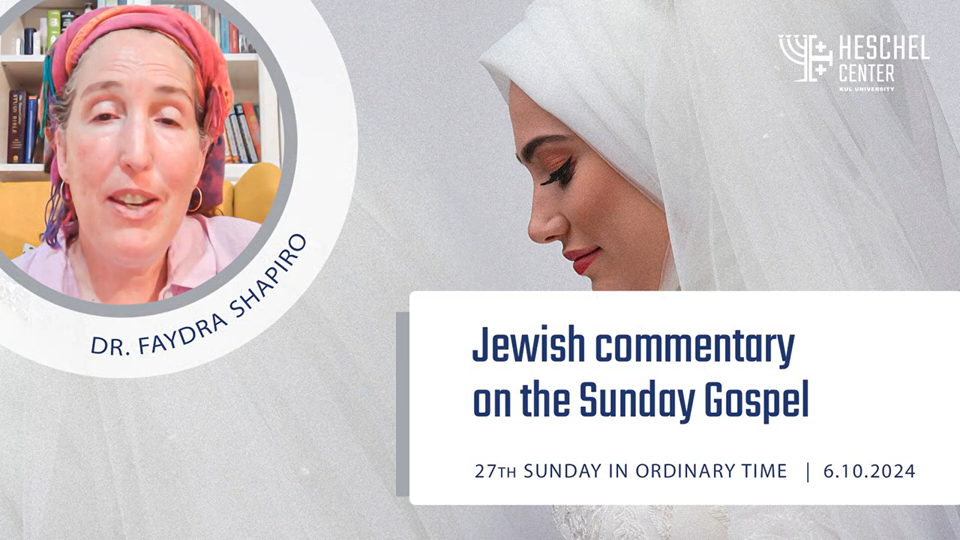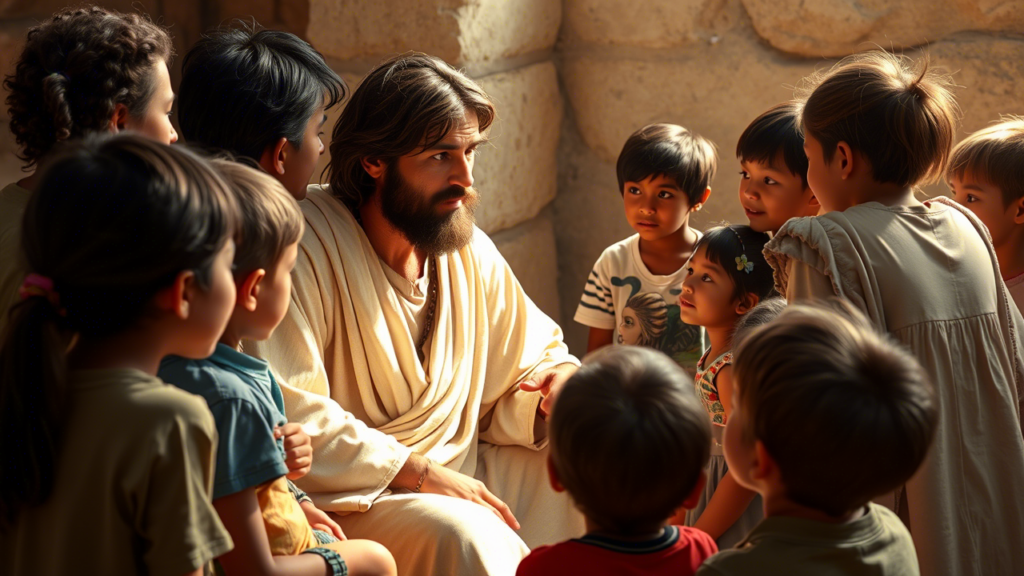Heschel Centre for Catholic-Jewish Relations at the Catholic University of Lublin
05 October, 2024
4 min
Marriage in Judaism and Christianity
“Jesus’ argument here about adultery is not a legal one, nor is it a social one. It is entirely an ideal one, focused on the ideal of marriage as “one flesh””, stresses Dr. Faydra Shapiro, a specialist in contemporary Jewish-Christian relations, in her commentary for the Catholic University of Lublin Heschel Center for the Sunday, […]

Jesus wasn’t the only Jew trying to work out the meaning and implications of this.
The Hebrew Bible’s acceptable grounds for divorce seems to be that the husband has found something objectionable in his wife. But what could that be? The Mishna recounts famous rabbinic schools of thought from Jesus’ time – the school of Hillel and the school of Shammai – debating and disagreeing about what constitutes acceptable grounds for divorce.
Marriage is (at least) two things: it is both an ontological truth in its living out of the ideal of Creation. It is also a social fact, full of this-worldly accidents of the challenges, personalities, affection and more that might arise between a couple.
The school of Shammai I think approaches marriage in its ontological sense – such that adultery is the profound break in its essence that not only permits divorce but in Jewish law requires it. Adultery says that whatever “this” is, it is no longer a marriage. The school of Hillel seems to approach marriage in its social sense – focusing on the actual relationship between the couple. It’s really not a question of “stricter” or “more lenient” but where one puts the focus – in its essence or in its manifestation. Which brings us then to Jesus.
Jesus is, I believe, addressing the ideal, the meaning, the plan for marriage. We see this in what is to me the most shocking part of this Gospel (Mk 10, 11-12): “Whoever divorces his wife and marries another commits adultery against her; and if she divorces her husband and marries another, she commits adultery.” This is particularly fascinating, because in Jewish practice of the time – and some would argue even today – a man is permitted multiple wives. This was not and is not considered adultery according to Jewish law. While relations for a married woman with another man who is not her husband is absolutely adultery in Judaism, relations for a married man with another woman not his wife is not.
Jesus’ argument here about adultery is not a legal one, nor is it a social one. It is entirely an ideal one, focused on the ideal of marriage as “one flesh”. Deuteronomy 24 however is not a vision of the essence or ideal of marriage at all. It is entirely practical and social, a legal “what if” – what if things don’t work as the ought? What are the procedures, how to protect vulnerable parties, what are the restrictions?
Jesus is not in my eyes making a change to the law of Moses here. He is, like the school of Shammai, placing emphasis on the meaning, essence and ideal of marriage. This perspectives of Shammai and Jesus are crucial for guiding and orienting us – Jews and Christians – through the complex lived realities of marriages that do not manifest this ideal, and require attention to the practical, social and legal answers to “what if…”
About the author:
Dr. Faydra Shapiro is a specialist in contemporary Jewish-Christian relations and is the Director of the Israel Center for Jewish-Christian Relations. She received the National Jewish Book Award for her first publication (2006). Her most recent book, with Gavin d’Costa, is Contemporary Catholic Approaches to the People, Land, and State of Israel. Dr. Shapiro is also a Senior Fellow at the Philos Project https://philosproject.org and a Research Fellow at the Center for the Study of Religions at Tel Hai College in Israel.
Related

Explaining Holy Week to Our Children: A Journey of Faith and Hope
Laetare
11 April, 2025
4 min

Christian Leadership in Business: A Model of Humility, Justice, and Solidarity
Javier Ferrer García
10 April, 2025
3 min

Guiding Our Decisions with God’s Will in Daily Life
Patricia Jiménez Ramírez
10 April, 2025
4 min

What are you going to do with your life?
Luis Herrera Campo
10 April, 2025
2 min
 (EN)
(EN)
 (ES)
(ES)
 (IT)
(IT)

